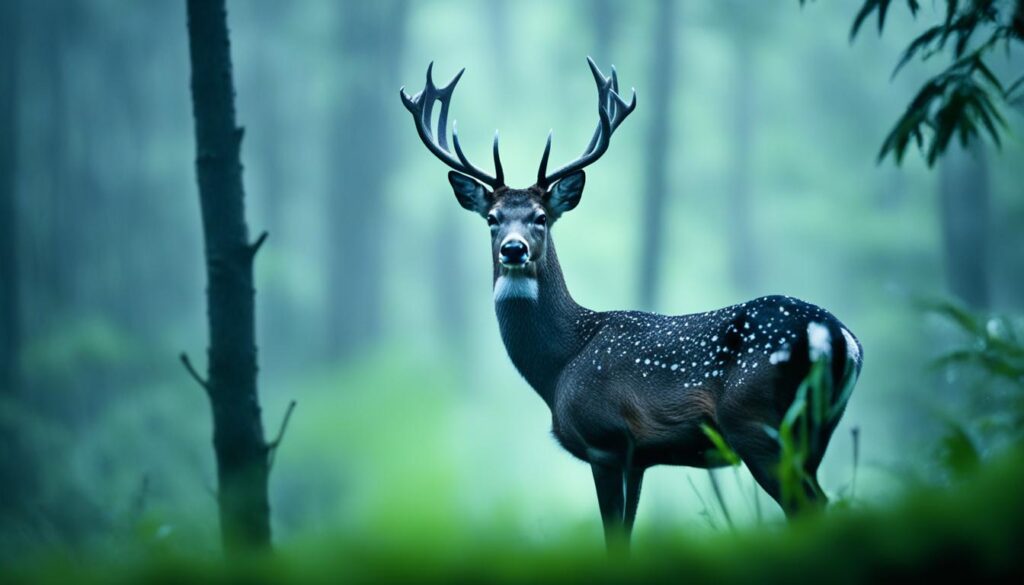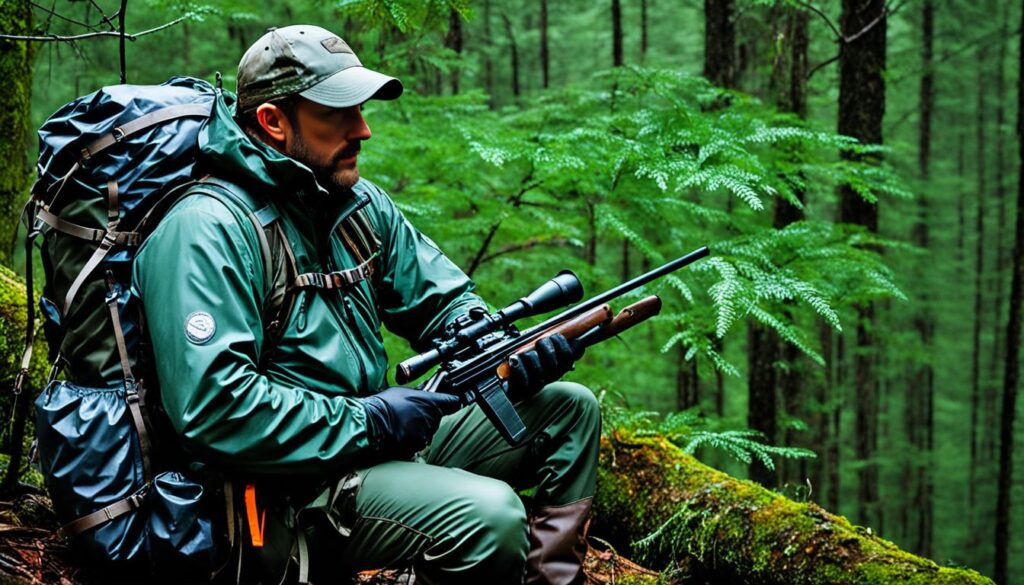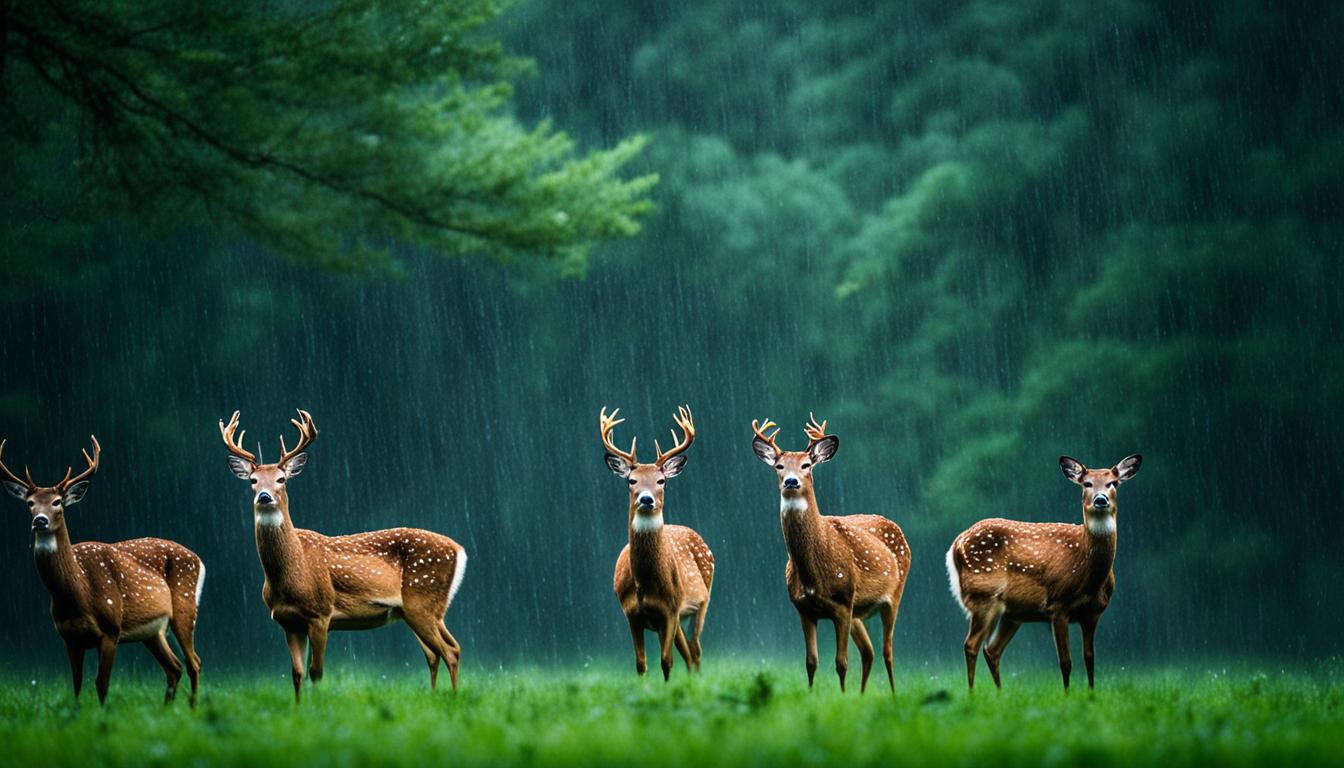Rainy weather often deters hunters from venturing out into the woods, but do deer actually move in the rain? According to various sources, including experienced hunters and experts, the general consensus is that rain does not significantly impact deer movement. While heavy downpours may cause all wildlife activity to stall temporarily, light rain or a steady drizzle does not deter deer from going about their business. In fact, some hunters have observed that rain can actually make deer more content and less skittish, as the constant motion and noise of raindrops through the woods lulls them into a sense of security. It is important to note that deer behavior may vary slightly depending on the specific circumstances and location, but in general, rain does not prevent deer from moving and going about their daily routines.
Content Highlights
ToggleKey Takeaways:
- Rain does not significantly impact deer movement.
- Light rain or a steady drizzle does not deter deer from their daily routines.
- Rain can make deer more content and less skittish.
- Deer behavior may vary slightly depending on circumstances and location.
- Rain does not prevent deer from going about their daily routines.
Factors Influencing Deer Movement in Rain
While rain may not significantly impact deer movement, there are certain factors that can influence their behavior during precipitation. According to experienced hunters, the intensity of the rain plays a role in deer movement. Heavy downpours can slow or shut down movement completely, while light rain or a drizzle tends to increase activity.
The window just after a heavy rain ends is often particularly fruitful, as deer that have been bedded down through the storm are hungry and eager to get moving. Additionally, deer are more likely to move during periods of light rain or drizzle if it is not accompanied by strong winds. This may be because the rain helps mask their scent and dampens noise, making them feel more at ease on their feet.
“During light showers, deer feel comfortable moving and grazing, taking advantage of the quieter environment created by the raindrops,” says experienced hunter Mark Davis.
It is worth noting that deer behavior can also vary depending on hunting pressure and the individual deer’s familiarity with rainy conditions. Some deer may become wary and reduce their movement during rain if they have experienced negative encounters in the past.
Tips for Hunting Deer in the Rain
Hunting deer in the rain requires some important considerations and adjustments. Here are some tips to increase your chances of success:
- Choose the right location: Look for areas where deer are likely to seek shelter or cover during rain, such as thickets, dense vegetation, or near food sources.
- Be patient: Wait for the rain to subside or hunt during lulls in the precipitation when deer are more likely to be active.
- Reduce your range: With reduced visibility and the sound-dampening properties of rain, adjust your shooting range accordingly to ensure an ethical shot.
- Hunt the edge: Pay attention to the edges of fields, wood lines, or transitions between different types of habitat, as deer may be more inclined to move along these areas during rain.
- Use still-hunting techniques: Move slowly and quietly through the hunting area, scanning for any signs of movement or feeding deer.
- Invest in proper rain gear: Stay dry and comfortable during your hunt by wearing waterproof clothing, including a rain jacket, pants, and waterproof boots.
- Keep safety first: Be mindful of slippery conditions and take extra precautions while traversing wet terrain.
By following these tips and adapting your strategies to the unique challenges of hunting in the rain, you can increase your chances of a successful hunt.

| Factors | Influence on Deer Movement in Rain |
|---|---|
| Intensity of Rain | Heavy downpours can slow or shut down deer movement, while light rain or a drizzle tends to increase activity. |
| Post-Heavy Rain | Deer that have been bedded down during heavy rain are often hungry and eager to move when the rain stops. |
| Light Rain or Drizzle | Makes deer feel more at ease on their feet due to the masking of scent and dampening of noise. |
| Hunting Pressure | Deer may reduce their movement during rain if they have had negative encounters in the past. |
| Familiarity with Rainy Conditions | Individual deer’s experience with rain can influence their behavior, with some becoming more wary and reducing movement. |
Tips for Hunting Deer in the Rain
Hunting deer in the rain requires some important considerations and adjustments. Here are some tips to increase your chances of success:
- Be prepared: When hunting in wet conditions, it’s crucial to have the right gear to stay dry and comfortable. Invest in waterproof clothing, including a rainproof jacket, pants, and boots. Don’t forget a waterproof hat and gloves to protect yourself from the elements.
- Choose the right location: During rainfall, deer often seek shelter in areas with cover. Look for dense vegetation, such as thickets, shrubs, and evergreen forests, where deer are likely to take refuge. These locations offer additional opportunities for ambush.
- Reduce range: Visibility can be reduced during rainy days, so it’s important to adjust your hunting technique accordingly. Consider hunting from a tree stand or ground blind to improve your chances of getting closer to deer without being detected.
- Hunt the edge: During rain showers, deer are more likely to move along the edges of open fields, clearings, and wooded areas. Position yourself near these transitional zones to take advantage of deer movement.
- Take advantage of still-hunting: Still-hunting can be particularly effective in wet conditions. Slowly and silently move through the woods, scanning for any signs of deer movement. Pay attention to feeding areas and bedding sites to increase your chances of spotting deer.
Remember, when hunting deer in the rain, it’s essential to remain patient, observant, and adaptable to changing conditions. By following these strategies and using the right gear, you can maximize your chances of a successful hunt, even during precipitation.
Expert Tip:
“One important thing to remember when hunting in the rain is to be extra cautious with your shot placement. Wet conditions can make blood trails harder to follow, so make sure you have a clean and ethical shot. Aim for vital organs like the heart or lungs to ensure a quick and humane kill.” – Mark Johnson, experienced hunter

Conclusion
While many hunters may avoid venturing into the woods on rainy days, the truth is that deer do move in the rain. Light rain or a drizzle does not deter deer from their daily routines, and in some cases, it may even make them more at ease and content. Factors such as hunting pressure and familiarity with rainy conditions can influence deer movement during precipitation.
By being prepared with the right gear and strategies, hunters can maximize their chances of success when hunting deer in the rain. One important consideration is reducing range, as rain can affect visibility and make shots more challenging. Hunting the edge of a field or wooded area can also be fruitful, as deer may seek cover or forage for food along these transitional zones.
Another effective technique for hunting in the rain is still-hunting. The rain helps to mask sounds and scents, making it easier for hunters to approach undetected. Additionally, timing is crucial when hunting in wet weather. The window just after a heavy rain ends is often an opportune time, as deer that have been sheltering during the storm may be eager to move and feed.
So, don’t let a little rain dampen your spirits. Rainy days can provide unique hunting opportunities and potentially lead to encounters with mature bucks that are more comfortable moving during these conditions. By understanding deer behavior in precipitation and employing the right strategies, hunters can make the most of their wet weather hunts and increase their chances of a successful harvest.
- California Deer Hunting Guide: Seasons, Rules, Permits, and More - 26 June 2024
- Arkansas Deer Season 2024 [Schedules, Licenses, Bag Limits & More!] - 26 June 2024
- 2024 Arizona Deer Season New Dates & Rules! - 25 June 2024




